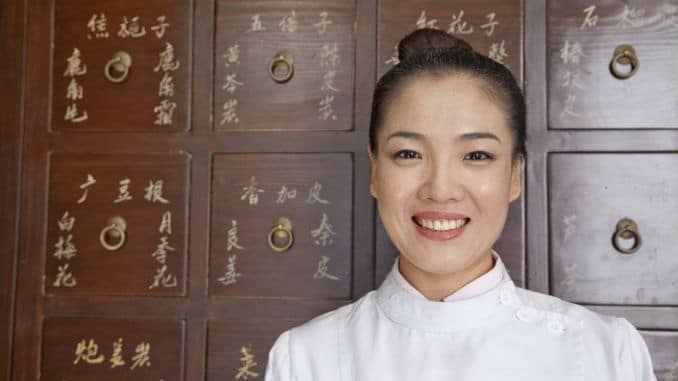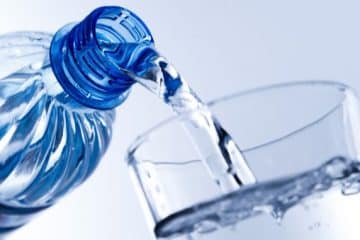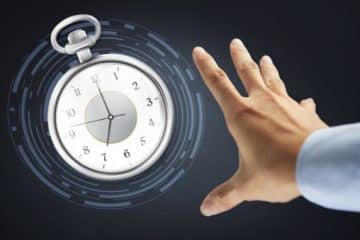In Chinese Medicine, there’s a huge connection to what’s going on with the body. The state of a patient’s emotional health can be a direct internal factor of a patient’s overall well-being. Different emotional imbalances can cause dysfunction and pathology in the organs and the meridians.
The Organs and The Meridians
The meridians are the longitudinal vessels of energy that run through the body. Each meridian is pair with two separate organs. Each organ is composed of a Yin organ and a Yan organ. Yin organs include the liver, heart, spleen, lungs, and kidneys.
The functions of these Yin organs are to produce, transform, regulate, and store the fundamental substances, such as Qi blood and body fluids. In general, the Yin organs do not have empty cavities. Each Yin organ is paired with one Yan organ.
The Yan organs are made up of the gallbladder, stomach, small intestines, large intestine, bladder, and the triple burner. The triple burner is not an organ in Western Medicine. Some consider it a fascia that connects everything together. It does not have a physical structure and is considered more of a functional unit.
The Yan organs are mainly responsible for digesting food and transporting nutrients in the body and they usually have empty cavities.
Paired organs:
- Lungs – large intestines.
- Stomach – spleen.
- Heart – small intestine.
- Triple warmer – pericardium.
- Kidney – bladder
- Gallbladder – liver
For example, the lungs are responsible for the emotion of grief. Intense grief can manifest as physical lung problems, ranging from common colds to severe conditions like pneumonia. Saying this, if you have severe lung pathology, it can create a chronic sensation of grief.
This is not to say that to experience any of these emotions means that the related organ is out of balance, but rather any extreme case or fluctuations of these emotions may be related to a problem with that organ.
Organ Emotions
-
Lungs and Large Intestines

This pertains to Element Metal and corresponds to the Emotion of Grief. Paired organs often mirror emotional traits; for instance, the large intestine symbolizes emotional release. Grief impairs lung function, prolonging the retention of trauma and causing additional symptoms such as constipation.These signs may indicate difficulty in letting go of the source of grief.
In the clinic, even promoting a bowel movement, can emotionally make you feel a lot better when you are dealing with something like this. Other than acupuncture or herbal medicines, some things that help the lungs and large intestine include clean air, good water hydration, Qigong, and Tai Chi.
Qigong and Tai Chi can really help cultivate an emotional connection to your organs in Chinese Medicine. It is one of the best forms of exercise and meditation that you can get for your body. Prioritize rest to boost immunity and support lung and large intestine health.
-
Spleen and Stomach
This pertains to the Element Earth. Pensiveness, worry, dwelling, focusing on a particular topic, excessive mental work exists all to be excessive mental stimulation and this can really affect the spleen. It can cause fatigue, lethargy, trouble concentrating, and interfere with activities like studying or eating, leading to appetite loss and stomach pains.
In Traditional Chinese Medicine, the tongue is a complete representation of what goes on in the inside of the body. When your spleen and stomach are taxed through over-worrying or overthinking, its function to digest food will decrease.
This can create a build-up of daftness in the body. This daftness can represent in the tongue as a swollen tongue.
Some things to protect the spleen and stomach include chewing food a lot. Make sure that you are enjoying what you’re eating. Relax when you’re eating. Preparing your food with love and practice calm-eating habits and enjoy eating it. Regular mealtimes are important.
Doing one thing at a time is really important, as it fosters an emotional connection to your organs, allowing you to focus more deeply on each task.
Foods that the spleen and stomach like the most include warm bone broth and soups and leafy vegetables. These will nourish the spleen and the stomach so you will be able to handle more of those overthinking and pensiveness thoughts. It will help you manage that through proper stomach functions.
-
Heart and small intestine

The heart and small intestines pertain to the Fire Element, and these organs are related to emotional Joy. In traditional Chinese Medicine, joy refers to a state of agitation or overexcitement, rather than elation. Anxiety is the biggest emotional component of this.
Pathological states come about when this emotion is in excess, such as heart palpitations, repeated agitation, excessive dreaming and insomnia, and poor long-term memory. We can see this as a cause and effect.
Having anxiety won’t necessarily mean you have heart palpitations, but having this physical chronic pathology may create an emotional imbalance itself. Constant heart palpitations, sleeplessness, and vivid dreams can exacerbate anxiety, worsening the overall condition.
Getting a dream journal is really powerful to help calm the heart down. Ensure emotional journaling, a nourishing environment, gentle Qigong, alignment with destiny, and supportive relationships.
-
Triple Warmer and Pericardium
The Pericardium is the heart’s protective sac. Its sole function is to protect the heart. It does not only provide the heart its physical protection, its Qi also protects the heart from damage and disruption by excessive emotional energies generated by other organs. These include anger from the liver, fear from the kidneys, grief from the lungs, and so forth.
On the other extreme, if the Pericardium is in disharmony, we may be shut down and over-protect ourselves as the fear of being hurt shuts everyone out.
-
Kidney and Bladders

This pertains to the Water Element. The emotion of the kidney and bladder is fear, where being fearful, isolated, and aloof can result in imbalances in these organs. Other than just urination, your kidneys are also responsible for your reproduction, growth, development, and maturation.
A common clinic issue is bedwetting in adolescents and children, often hindered by fear, affecting maturation and emotional connection to organs.
To support the kidneys and bladder, prioritize relaxation, moderation, embracing energy fluctuations, ample water intake, and using healthy salts like Himalayan or unprocessed sea salt.
-
Liver and Gall Bladder
This pertains to the Wood Element. Emotional symptoms in the liver include irritability, frustration, depressive feelings, impatience, a sense of being stuck and lack of direction, and the inability to make critical decisions.The Gall Bladder rules between two options – decision making and good judgment, reflecting the emotional connection to your organs.
In the clinic, we always treat the liver meridian because in day to day life, everybody is always stress out. The liver helps you deal with the external environment.
The physical symptoms that can arise are excessive anger and resentment that causes Qi in the body to rise up quickly, creating headaches, ringing in your ears, high blood pressure, and GERD.
Adrienne Coombs
It was born and raised in Nelson, British Columbia. She began her education with a degree in Kinesiology at Langara College in Vancouver, B.C. Following this, she studied Traditional Chinese Medicine at the Academy of Classical Oriental Sciences in her hometown of Nelson where she finished the 5- year Doctorate of TCM. Currently, she is a Traditional Chinese medicine practitioner and Sports Medicine Acupuncturist at Pro Motion Clinic at British Columbia, Canada.
Tired of struggling with constant fatigue? Click here to learn more.





